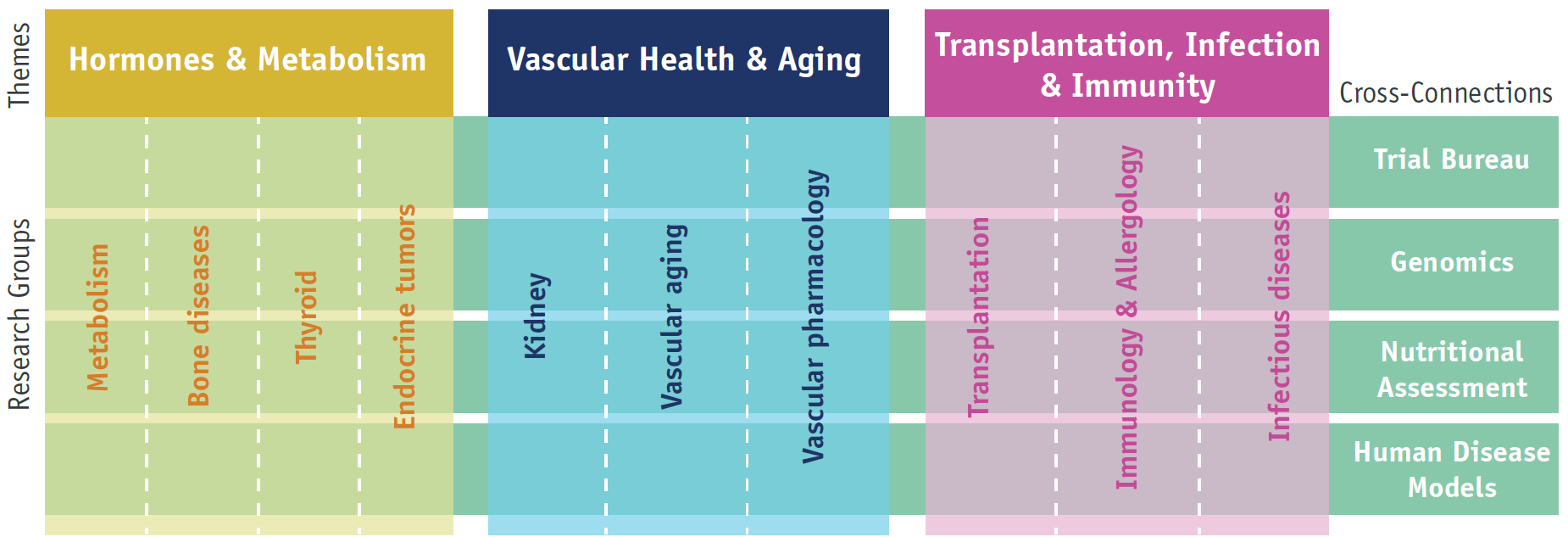The department’s research programme is called Clinical and Experimental Medicine (CEM).
CEM focuses on three research themes:
1. Hormones and Metabolism
2. Vascular Health and Aging
3. Transplantation, Infection and Immunity
Each research theme harbours three to four research groups, amounting to a total of ten research groups that each have a laboratory.
All research groups are connected by four cross-connections in order to stimulate intradepartmental collaboration and share resources and expertise. For sustainability, each cross-connection is based on a business case and has dedicated research personnel.
I. The Trial Bureau facilitates and supports clinical trials and utilizes revenues from industry-sponsored trials to support investigator-initiated studies.
II. Genomics aims to extend the possibilities of genetic testing from populations to patient cohorts; the scientists who coordinate this cross-connection are also part of the Erasmus MC Genomics Core Facility.
III. Nutritional Assessment enables researchers to apply state-of-the-art technologies to assess nutritional status, including bio-impedance, muscle ultrasound and indirect calorimetry; this cross-connection benefits from the fact that all dietitians are embedded within our department.
IV. Human Disease Models integrates in vitro and ex vivo models to study human disease, including organ-on-chip technologies and organoids.
Our research laboratories are all equipped with sufficient basic laboratory equipment. We have ML-I and ML-II cell culture facilities, bio-analyzers, FACS machines, LC-MS/MS facilities and state-of-the- art equipment for genetic analysis, including high-tech advanced machines for high throughput genetic analysis.
The Department of Internal Medicine actively seeks collaboration with multiple national and international research groups.

